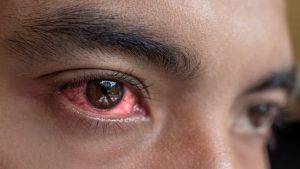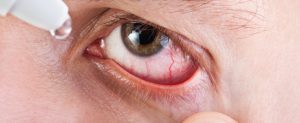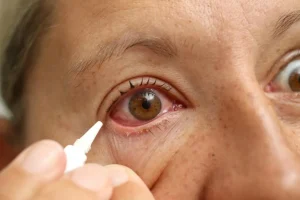
Remedies for eye redness. Irritation or damage can cause your eye to turn red. Some types of eye redness can be treated at home, while others need medical attention. An eye care professional can treat you if you also experience pain, fever, impaired vision, discharge, or other symptoms in addition to your red eye. Red, angry, and bloodshot eyes are commonly referred to as “red eyes.” The redness is caused by enlargement or inflammation of the small blood vessels beneath the surface of your eye. It usually occurs in response to something that irritates your eye. One or both eyes may become red. It may arise gradually or all at once, as in the case of allergies or eye injuries.
REMEDIES FOR EYE REDNESS
While conjunctivitis, commonly known as “pink eye,” is an eye irritation that can be caused by various factors such as bacteria, viruses, allergies, or irritants, there are some home remedies that may help alleviate symptoms and promote healing. However, it’s essential to consult with a healthcare professional for a proper diagnosis and treatment plan, especially if symptoms are severe or persist.
Here are some home remedies:
1. Warm Compress;

REMEDIES FOR EYE REDNESS
Applying a warm compress to the affected eye can help reduce inflammation, soothe irritation, and alleviate discomfort. Simply soak a clean cloth in warm water, wring out excess moisture, and place it gently over the closed eyelid for 5-10 minutes several times a day.
2. Cold Compress
In cases of allergic conjunctivitis or swelling, a cold compress may be more effective in reducing inflammation and relieving itching. Use a clean cloth or ice pack wrapped in a thin towel and apply it to the closed eyelid for 5-10 minutes as needed.
3. Artificial Tears

REMEDIES FOR EYE REDNESS
Over-the-counter artificial tear drops or lubricating eye drops can help relieve dryness, redness, and irritation associated with conjunctivitis. Follow the instructions on the product label and use as directed to keep the eyes moist and comfortable.
4. Avoid Irritants
Avoiding irritants such as smoke, dust, pollen, and harsh chemicals can help prevent exacerbation of symptoms and promote healing. Keep windows closed during high pollen seasons, avoid rubbing or touching the eyes, and practice good hygiene to reduce the risk of spreading the infection to others.
5. Honey Eye Drops;

REMEDIES FOR EYE REDNESS
Some research suggests that honey eye drops may have antimicrobial properties and could help alleviate symptoms of bacterial conjunctivitis. However, it’s essential to use caution when applying honey near the eyes and consult with a healthcare professional before trying this remedy.
6. Tea Bags
Chamomile or green tea bags soaked in warm water and then cooled can be applied to closed eyelids to help reduce inflammation and soothe irritated eyes. The anti-inflammatory properties of tea may provide relief from symptoms of conjunctivitis.
7. Clean Eyelids

REMEDIES FOR EYE REDNESS
Keeping the eyelids clean and free of discharge can help prevent the spread of infection and promote faster healing. Use a gentle cleanser or saline solution to clean the eyelids and remove any crust or debris.
Summary
If you have mild conjunctivitis, these home remedies may help temporarily, but they are not a replacement for professional medical care. If your symptoms worsen or persist, or if you have severe pain, changes in vision, or discharge from your eye, you should see an eye care professional right away. They can identify the underlying cause of your conjunctivitis and prescribe the right treatment, which may include prescription drugs like antibiotics or antiviral eye drops.